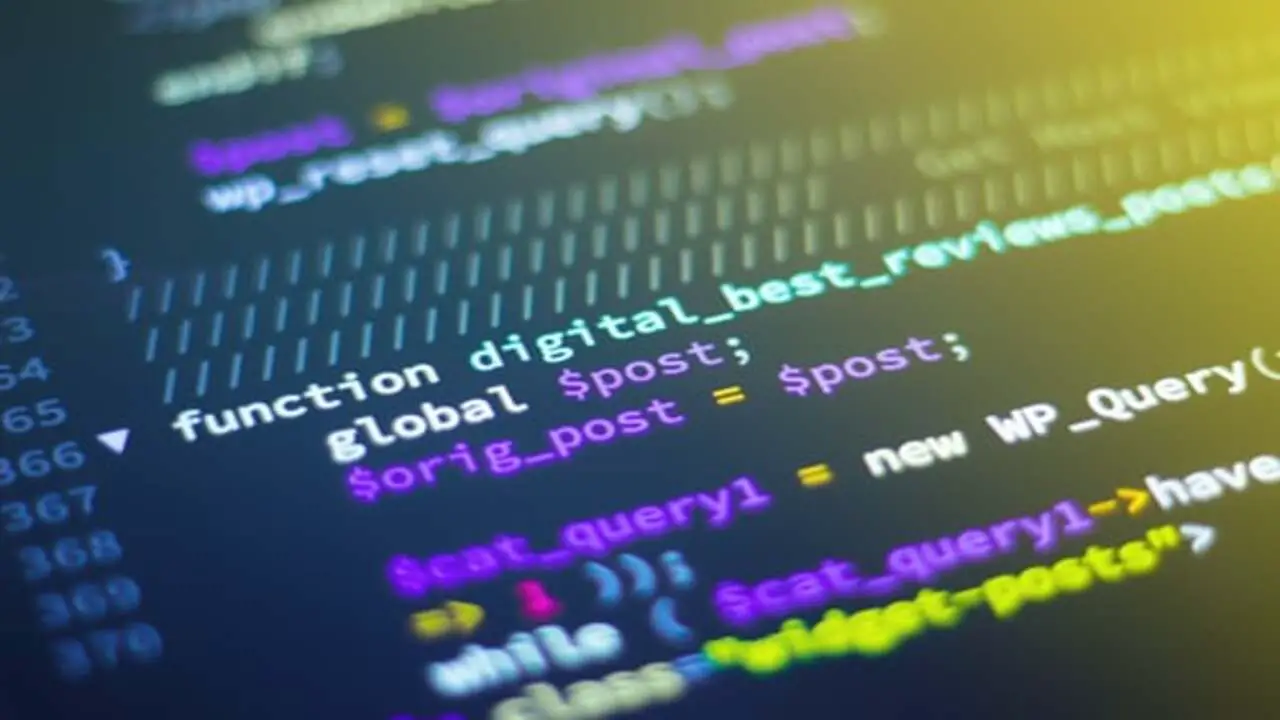Python has emerged as one of the most popular programming languages in recent years. Its simplicity, versatility, and vast array of applications have made it a go-to choice for developers, data scientists, and enthusiasts alike.
As the demand for Python skills continues to grow, finding the best Python course becomes crucial for individuals looking to acquire or enhance their programming skills. In this article, we will explore the world of Python courses and present a comprehensive guide to help you choose the most suitable option.
With numerous courses available in the market, selecting the right one can be overwhelming. That’s why we have undertaken the task of evaluating various criteria to identify the top contenders. By considering factors such as curriculum comprehensiveness, interactivity, instructor expertise, hands-on projects, and student support, we aim to provide you with a well-informed perspective on the best Python courses.
Whether you’re a beginner taking your first steps into programming or an experienced coder seeking to deepen your Python knowledge, a well-designed Python course can accelerate your learning journey. By understanding the strengths and weaknesses of different courses, you can make an educated decision that aligns with your specific learning objectives.
Criteria for Evaluating Python Courses
When it comes to evaluating Python courses, several key criteria can help you assess their quality and suitability for your learning needs. By considering these factors, you can make an informed decision and choose a Python course that offers a comprehensive and effective learning experience. Here are the essential criteria to consider:
- Comprehensive curriculum: Look for courses that provide a well-structured curriculum, covering fundamental Python syntax, data structures, control flow, object-oriented programming, and popular libraries/modules. A comprehensive curriculum ensures you gain a solid foundation and exposure to relevant tools.
- Interactive learning experience: Effective Python courses offer interactive learning features such as coding exercises, quizzes, and projects. These hands-on activities allow you to apply what you’ve learned, reinforce your understanding, and develop practical skills. Courses with integrated coding environments or IDEs facilitate seamless practice within the course materials.
- Experienced instructors: The expertise and teaching style of instructors significantly impact your learning. Seek courses taught by instructors with extensive Python programming experience and a talent for explaining complex concepts clearly. Instructor profiles and backgrounds can provide insights into their qualifications and teaching approach, helping you gauge their suitability.
- Hands-on projects and exercises: Practical application is crucial for mastery. Look for courses that provide opportunities to work on hands-on projects and coding exercises. These real-world applications enable you to gain valuable experience and reinforce your learning by solving problems and building practical solutions.
- Student support and community: Access to support and a vibrant student community can greatly enhance your learning experience. Look for courses that offer avenues for student support, such as discussion forums or Q&A sessions with instructors. Additionally, an active student community fosters collaboration, allowing you to seek guidance, share ideas, and learn from fellow learners.
Best Python Courses in the Market

When it comes to Python courses, the market offers a plethora of options tailored to different skill levels and learning objectives. To help you navigate through the choices, let’s explore three top Python courses that have garnered positive reviews and gained recognition for their effectiveness:
1. Python Mastery: From Fundamentals to Advanced
“Python Mastery” is an in-depth and comprehensive Python course designed to take learners from fundamentals to advanced programming concepts. It is suitable for both beginners and intermediate learners who want to strengthen their Python skills. The course covers topics such as data types, control flow, functions, object-oriented programming, file handling, web scraping, and more.
The course starts with the basics, gradually building a strong foundation. It incorporates practical exercises and real-world examples to reinforce learning. Advanced topics include working with databases, GUI development, and web frameworks like Django. The curriculum is regularly updated to stay relevant to the latest Python advancements.
“Python Mastery” offers a combination of video lectures, interactive coding exercises, quizzes, and hands-on projects. The course platform provides an integrated coding environment for practicing code in real-time. Additionally, supplementary resources such as cheat sheets, reference guides, and a dedicated discussion forum enhance the learning experience.
The course is led by a seasoned Python developer with over a decade of industry experience. The instructor has a proven track record of teaching Python effectively and is known for their clear explanations and practical approach.
Past students praise “Python Mastery” for its comprehensive curriculum, engaging teaching style, and the instructor’s ability to break down complex concepts. Many students have reported successful career transitions or significant skill improvements after completing the course.
2. Python for Data Science and Machine Learning
“Python for Data Science and Machine Learning” caters to individuals interested in leveraging Python for data analysis, visualization, and machine learning. The course focuses on popular Python libraries such as NumPy, Pandas, Matplotlib, and Scikit-learn to equip learners with the necessary tools for data-driven tasks.
The course covers the fundamentals of data manipulation, exploratory data analysis, statistical analysis, and machine learning algorithms. Learners gain hands-on experience by working on real datasets and building predictive models. The curriculum emphasizes practical applications and provides insights into best practices in the field.
“Python for Data Science and Machine Learning” offers a mix of video lectures, coding exercises, and guided projects. The course platform provides Jupyter Notebooks, enabling learners to execute and experiment with code seamlessly. Additional resources such as datasets, reference materials, and community support are available to enhance the learning process.
The instructor of the course boasts extensive industry experience as a data scientist, having contributed to numerous industry projects and possessing a strong grasp of Python’s applications in data science and machine learning. As a result, learners can expect a learning experience that is practical, relevant to industry needs, and aligned with current practices.
The course’s emphasis on hands-on learning and real-world data science projects has garnered positive feedback from students. Many have expressed satisfaction in their ability to directly apply the knowledge gained from the course to their work or seize new job prospects in the data science realm.
3. Python Web Development: Build and Deploy Websites
“Python Web Development” caters to individuals interested in building dynamic websites and web applications using Python. It covers essential web development concepts, front-end and back-end technologies, and popular frameworks such as Flask and Django.
The course starts with the basics of HTML, CSS, and JavaScript before diving into server-side scripting with Python. Learners gain a comprehensive understanding of building user interfaces, handling forms, working with databases, and deploying websites. The curriculum also includes topics like user authentication, API integration, and optimizing website performance.
The course combines video tutorials, coding exercises, and practical projects to reinforce learning. Learners work on progressively challenging assignments, culminating in the development and deployment of a fully functional web application. The course platform provides necessary resources such as code samples, project templates, and a supportive community.
The course is led by an experienced web developer with expertise in Python and web technologies. The instructor’s industry background ensures practical insights and up-to-date knowledge of best practices in web development.
Students appreciate the course’s practical focus and the instructor’s clear explanations of complex web development concepts. Many have successfully built and launched their own websites or secured positions as web developers after completing the course.
4. Python for Automation: Streamline Your Workflow
“Python for Automation” targets individuals seeking to automate repetitive tasks and streamline workflows using Python. It covers essential automation concepts, file and directory operations, web scraping, interacting with APIs, and GUI automation.
The course begins with an introduction to automation and its benefits. It then delves into Python libraries and techniques for automating various tasks. Learners explore web scraping to extract data from websites, interact with APIs to retrieve and process data and leverage GUI automation to automate interactions with desktop applications.
“Python for Automation” offers a combination of video tutorials, coding exercises, and hands-on projects. The course provides access to code samples, additional resources, and a community forum where learners can seek guidance and share their automation projects.
The course is taught by an experienced automation engineer who has extensive knowledge of Python and automation techniques. The instructor’s practical experience in automating workflows ensures a practical and real-world-oriented learning experience.
Students praise the course for its practical focus and relevance to real-world automation scenarios. Many have reported significant time savings and increased productivity in their daily tasks after applying the concepts learned in the course.
5. Python for Game Development: Create Your Own Games
“Python for Game Development” is designed for individuals interested in creating their own games using Python. The course covers game development principles, game design, graphics programming, and game physics.
The course begins with an introduction to game development concepts, including game loops, game states, and event handling. Learners explore Python libraries such as Pygame and Arcade for creating 2D games. The curriculum includes topics like sprite animation, collision detection, game physics simulations, and sound effects.
“Python for Game Development” offers video tutorials, coding exercises, and game development projects. Learners have access to code templates, game assets, and a supportive community where they can showcase their games, seek feedback, and collaborate with fellow game developers.
The course is led by a seasoned game developer with extensive Python and game development expertise, providing learners with valuable insights into game design principles and practical programming techniques.
Students value the course’s interactive nature and the instructor’s adeptness at simplifying intricate game development concepts. Numerous students have successfully developed their own games, with some even earning recognition within game development communities.
Conclusion
In conclusion, the Python courses available in the market cater to a wide range of learning objectives and skill levels. Courses like “Python Mastery: From Fundamentals to Advanced,” “Python for Data Science and Machine Learning,” and “Python Web Development: Build and Deploy Websites” offer comprehensive content, interactive learning formats, and experienced instructors.
By considering factors such as curriculum, interactivity, instructor expertise, and practical projects, learners can choose a course that aligns with their specific needs. Whether starting from scratch or looking to specialize in data science or web development, these top Python courses provide valuable knowledge and skills to excel in the world of Python programming. Investing in a reputable course can accelerate learning and unlock countless opportunities for success in the Python ecosystem.
Additional Posts:


